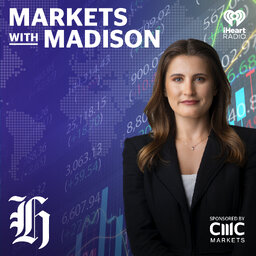Why central banks cut rates quickly
[VIDEO EPISODE ON YOUTUBE & SPOTIFY] Interest rates are continuing to be cut, with another Reserve Bank move expected this week. How soon will it result in economic relief?
In 1 playlist(s)
Markets with Madison
The New Zealand Herald is proud to present Markets with Madison, a twice-weekly show that aims to he…Social links
Follow podcast
Recent clips

Inside Australia’s Strategic Data Centre Expansion
23:54

Behind DroneShield’s Major Military Expansion
40:34

Inside a 1950’s Hydro Power Station!
30:26
 Markets with Madison
Markets with Madison